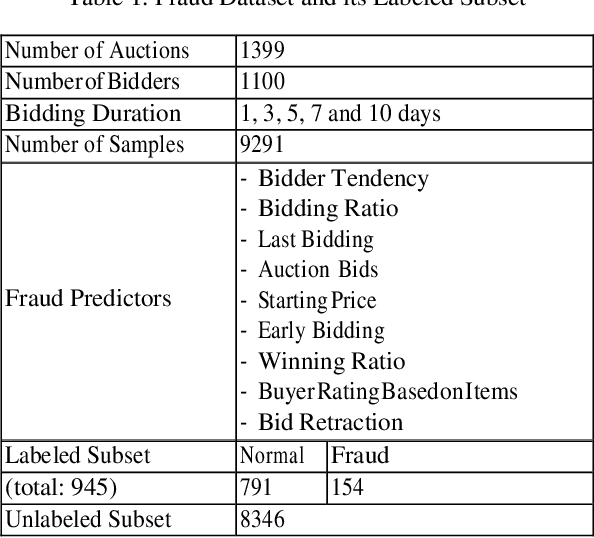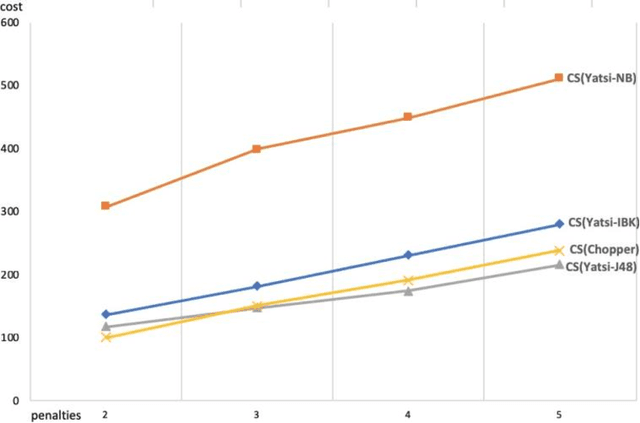Cost-sensitive Semi-supervised Classification for Fraud Applications
Paper and Code
Dec 21, 2020



This research explores Cost-Sensitive Learning (CSL) in the fraud detection domain to decrease the fraud class's incorrect predictions and increase its accuracy. Notably, we concentrate on shill bidding fraud that is challenging to detect because the behavior of shill and legitimate bidders are similar. We investigate CSL within the Semi-Supervised Classification (SSC) framework to address the scarcity of labeled fraud data. Our paper is the first attempt to integrate CSL with SSC for fraud detection. We adopt a meta-CSL approach to manage the costs of misclassification errors, while SSC algorithms are trained with imbalanced data. Using an actual shill bidding dataset, we assess the performance of several hybrid models of CSL and SSC and then compare their misclassification error and accuracy rates statistically. The most efficient CSL+SSC model was able to detect 99% of fraudsters and with the lowest total cost.
 Add to Chrome
Add to Chrome Add to Firefox
Add to Firefox Add to Edge
Add to Edge